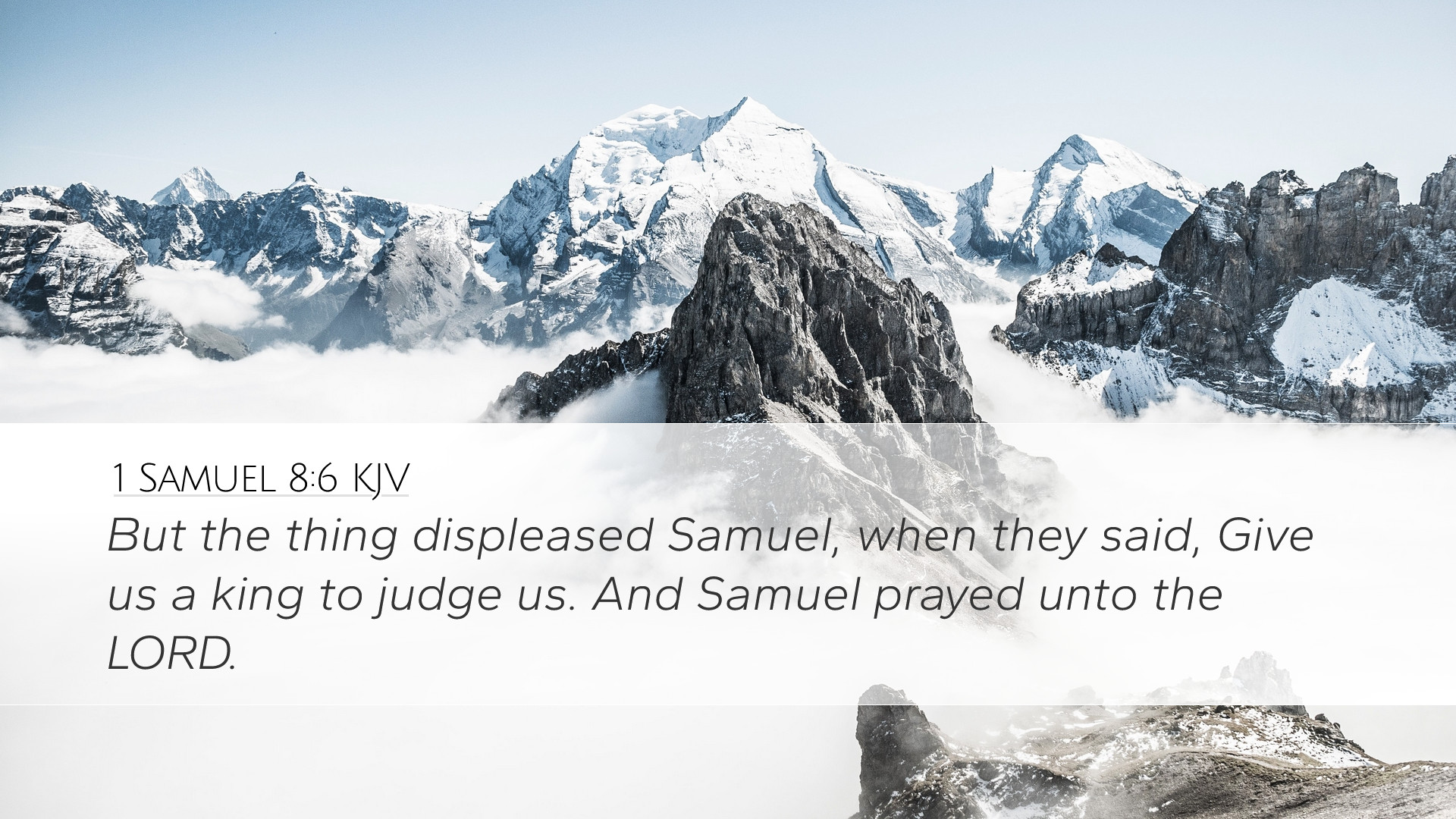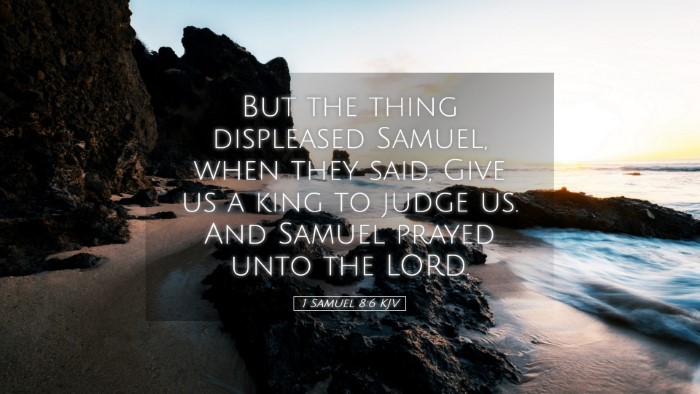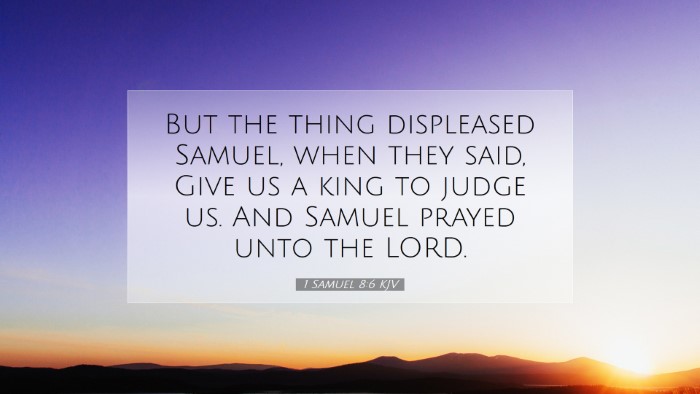Commentary on 1 Samuel 8:6
Verse: 1 Samuel 8:6 - "But the thing displeased Samuel, when they said, Give us a king to judge us. And Samuel prayed unto the Lord."
Contextual Background
The request for a king in Israel marks a significant turning point in the narrative of the nation. Prior to this, Israel had been ruled by judges, who were raised up by God in times of crisis. This verse encapsulates the moment when the people express dissatisfaction with their current governance, seeking a monarchy like that of surrounding nations.
Insights from Commentaries
Matthew Henry
Matthew Henry emphasizes Samuel's discontent at the people's demand for a king. He notes that the request was made in a time of peace and suggests this reflects a lack of faith in God as their sovereign. Henry describes Samuel’s response as both concerned and prayerful, highlighting the importance of prayer in discerning God’s will. He writes:
"Samuel, being a good man, was grieved at the people’s request; this was a rejection of God’s direct rule over them. It showed their desire for conformity to worldly standards, rather than seeking divine guidance."
Albert Barnes
Albert Barnes provides a broader context to this request, explaining that it represents a pivotal moment in the history of Israel. He elaborates on the implications of seeking a king:
- Rejection of God: Barnes states that by asking for a king, the Israelites were effectively rejecting God's direct governance.
- Misunderstanding Leadership: He points out that they misunderstood what true leadership meant, equating it to human authority rather than divine guidance.
- God’s Permissive Will: Barnes highlights that while God allowed this request, it was not His perfect will for Israel, but rather allowed as a consequence of the people’s sins.
Adam Clarke
Adam Clarke delves into the implications of the people's demand for a king. He argues that the request stemmed from a desire for stability and a sense of nationalism rather than a focus on faithfulness to God:
"They wished to be like the surrounding nations, which demonstrated an ungrateful spirit. They forgotten their unique identity as God’s chosen people, reliance on sovereign leadership."
Clarke further notes that while Samuel was distressed, he sought the Lord for guidance, demonstrating the role of prayer in times of national crisis and personal discontent.
Theological Reflections
The plea for a king raises critical theological themes relevant for pastoral ministry and theological reflection today:
- Authority and Governance: The desire for human leadership over divine guidance can resonate in contemporary contexts where church and political authority are often conflated.
- Divine Sovereignty: This passage serves as a reminder for believers to reflect on the sovereignty of God in leadership and governance.
- Acceptance of God’s Plan: The narrative prompts a question regarding the acceptance of God's methods of governance versus human desires for control.
Practical Application
Pastors and theologians can draw several lessons from 1 Samuel 8:6:
- Cultivate Prayerfulness: Like Samuel, leaders must approach God in prayer when faced with distressing situations or decisions.
- Encourage Dependence on God: Teaching congregations the importance of relying on divine leadership rather than solely on worldly structures.
- Promote Faithfulness: Emphasizing the unique calling of God’s people in contrast to societal norms and expectations.
Conclusion
1 Samuel 8:6 serves as a reflection on the heart of the people of Israel— a desire for earthly kingly authority over divine leadership. It challenges contemporary readers to examine their own allegiances, reminding them of the importance of faithfulness to God and the power of prayer in discerning God’s direction for their lives.


